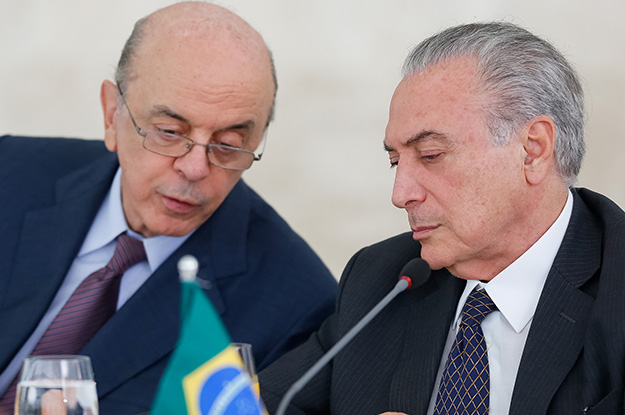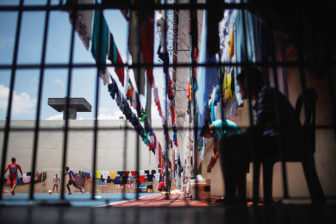Last week, Fórum Brasileiro de Segurança Pública, a well-respected NGO based in São Paulo, published a series of grim statistics. In 2015, a staggering 58,383 people were assassinated in Brazil. The number of murders in Brazil increased over 250 percent in the last three decades, jumping from 13,910 in 1980 to above 50,000 in 2012. This means that one person is killed in the country every nine minutes, or 160 per day.
These figures are particularly noteworthy because Brazil has no territorial disputes or civil, religious or ethnic wars. Some say that the rate could be even higher, arguing that up to 15 percent of murders go unreported, particularly in Brazil’s rural areas. Sadly, exorbitant crime is nothing new. Between 2004 and 2007, almost 200,000 people died of homicide in Brazil, exceeding the number of people killed in the largest armed conflicts in the world during the same period.
Unfortunately, there is little hope for systematic progress on the domestic level, as the problem is intimately related to a complex array of issues ranging from inequality and police impunity to an archaic justice system and drug policy – which are controlled by different levels of government. To make matters worse, Brazil is seeing the rise of the so-called “bullet caucus,” which consists of more than 20 legislators with strong name-recognition and bright political futures who seek to facilitate gun ownership and fight against progressive laws, for example those which prevent teenagers from being tried and sentenced as adults, or those which allow some convicts to avoid long prison sentences.
This is where Brazil’s diplomats come in. It is often overlooked that Brazilian foreign policy could be a key ingredient in addressing the country’s murder epidemic. Indeed, given that foreign policy is less constrained by interest groups that create obstacles to meaningful progress, it may just be one of the most promising approaches to dealing with the problem.
How? To put it simply, by working towards creating international rules and norms with teeth and building momentum that will, in turn, increase the pressure on domestic actors to adapt to regional or global standards.
There are tangible examples of how this mechanism can work. Important human rights advances in Brazil, including modern legislation regarding domestic violence (such as the Maria da Penha Law) are, in fact, adaptations of Brazilian law to international standards, and often the product of international pressure by multilateral groups. Promoting the establishment of regional standards is therefore an essential tool to advance those topics domestically as well.
Put differently, being surrounded by governments with stronger legislation against gun violence (including transparency mechanisms during the licensing process) increases the pressure for domestic actors in Brazil to abide by them as well. In several instances, Brazil has resisted such a strategy, because there is a real risk it will be publicly shamed by its peers on a range of issues. For example, in additional to its high murder rate, the country is among the most dangerous in the world for journalists and the LGBT community. In addition, Brazil is the country with the highest number of murders of environmental activists globally.
How could this strategy be used in Brazil’s favor? A first step would be promoting gun registration on a regional scale and strengthening cross-border cooperation. Despite an existing set of regional agreements, the majority of the millions of firearms in Brazil are not registered, and though most are produced in Brazil, they are often sold abroad and are then smuggled back into the country. Brazil could lead efforts to spur a regional debate about gun registration and improve joint management of borders – and also prioritize the issue during bilateral meetings with key partners such as Mexico and the U.S., and at international forums such as the U.N. and BRICS. The IBSA grouping, consisting of India, Brazil and South Africa, could become a platform to share best practices, considering that South Africa faces similar challenges.
A strong Brazilian diplomatic stance on the matter is bound to have positive global consequences, too. Brazil is now the fourth largest supplier of small arms and ammunition in the world, and it has yet to ratify the Arms Trade Treaty (ATT), which it signed in 2013, an agreement that prevents states from selling conventional weapons to states and brokers who pose a high risk of committing crimes against humanity. While it has been approved by a key committee in Brazil’s lower house, it is being held up in the Committee on Public Security, where the “bullet caucus” dominates. Naturally, these actors are, to some extent, immune from international pressure. But taking the lead on the matter internationally would certainly increase the political cost for the vanguard of backwardness.









